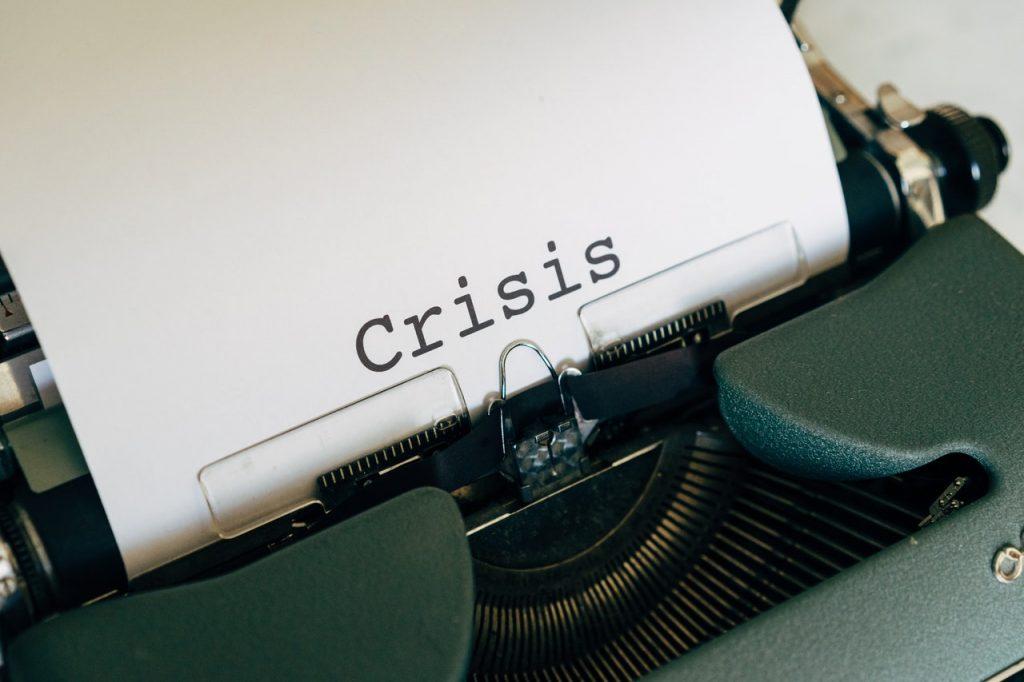
How do you respond in a crisis?
More importantly, what is a crisis to you?
Is it a sudden job loss, a car accident, losing a loved one?
A crisis can be the introduction of a new department head, a restructuring, merger, or closure of a branch.
It’s crucial that we reframe our reactions to a crisis as a normal reaction by a normal person to an abnormal event.
From there, we can have a constructive conversation about mental health and wellness and crisis intervention support.
The event is never the real crisis
Last week I talked about apologizing for emotions. I’d like to explore that in more depth.
During my career as a workforce wellness expert, I’ve logged over 200,000 kilometres in my car – and I can assure you, the statistics about accidents happening with five kilometres of your home are accurate!
Having said that, when I met with a client traumatized by an accident, who had only covered a fraction of the kilometres I had in their vehicle, I didn’t undermine their emotions.
For them, that accident was a crisis. If I were using my standard, without any empathy, I could mock their trauma and say, “That’s nothing! You should see the close calls I’ve had!”
But my standard isn’t theirs. Their level of crisis is different than mine. I need to honour and respect that.
The event itself is never the real crisis…
What is a crisis? It’s a “krisis”…
To address what’s happening, we actually need to look at the origin of the word “crisis” – from the Greek word “krisis”.
Krisis has several defining characteristics. The first three are that the event:
- is unexpected;
- creates uncertainty;
- is seen as a threat to important goals.
According to S.J. Venette, the crisis “is a process of transformation where the old system can no longer be maintained.” If change is not needed, the event could more accurately be described as a failure.
So, an organizational krisis is something that could:
- Threaten a major product line or business unit;
- Damage an organization’s financial performance;
- Harm the health and well being of consumers, employees, surrounding communities, or the environment;
- Destroy the public’s trust in an organization, its reputation, and image.
Therefore organizational krisis is
A specific, unexpected, and non-routine event or series of events creates high uncertainty levels and a threat or perceived threat to an organization’s high priority goals. Venette,
S. J. (2003) Risk Communication in a High-Reliability Organization.
Crises are often unexpected because of…
- Human realities. There is no way we can plan for every potential event, but even then, the reality is that we can only attend to a certain number of tasks, concerns, and priorities.
- The concerns we can see can be mitigated, so they don’t become significant crises/events.
- The defence mechanisms of humans, which are thinking we can protect ourselves by denying emotions or psychological realities, we will unwittingly avert the crisis.
The simple reality is that the definition of krisis is not the same for all people all the time – and that’s a good thing when it’s understood.
A krisis for one person doesn’t always make the other person’s radar.
If that other person is the leader, and they’re oblivious to the crisis, it stands to reason that organization doesn’t care, and soon it will show up as turnover, stress leave, or worse for their team.
There are ways to avert a crisis with your team.
A simple approach to support through a krisis
If you have a friend going through a crisis, it’s vital that you’re direct in your questioning…that you don’t allow your version of “okay” to get in the way of their struggle.
The same goes for your team.
A simple approach to supporting your staff through a crisis is to:
- Ask if this was unexpected.
- Review what is certain and what is now uncertain. Talking through the facts will aid a person in dealing with the impact.
- Suggest that they go through the basics:
- Sweat. Do something physical to raise your heart rate.
- Flush. Take in healthy fluids.
- Fill. Take in healthy foods, and be aware of what you’re consuming regarding the new media.
- Discuss what their options are to move forward.
- This is not long-range thinking – that part of the brain won’t work in crisis mode. Talk about things that could happen in the next day or two; specifically, what are some things under their control that could be done?
Swim harder!
Do you want to be a good leader in a crisis?
Don’t be that person on the shore yelling to the drowning victim, “Just swim harder!”
Wade out into the water and throw them a rope. Be helpful in a way they haven’t thought of already…or a way that isn’t available to them given the state of their crisis.
Meet them where they’re at in their crisis, and do your best to lead them to shore. Don’t judge the circumstances that led them to the crisis – did their boat sink, did the tide turn, did they misjudge the depth of the water and their ability to swim?
It doesn’t matter. You could stand on the shore and think, “If that were me, I could make it to shore.” or, “If that were me, I never would have gone out that far in the first place.”
Those aren’t the thoughts of a strong leader.
Would you like to know about how to be a strong leader, one who can build strong teams and lead through a crisis? Contact me.
Enjoyed this article? Here are three more to help you:
The Important of Communication in Business and Why It Requires Transparency
Krisis: Reframing Wellness
Finishing Well Requires Self-Examination and a Will to Matter


